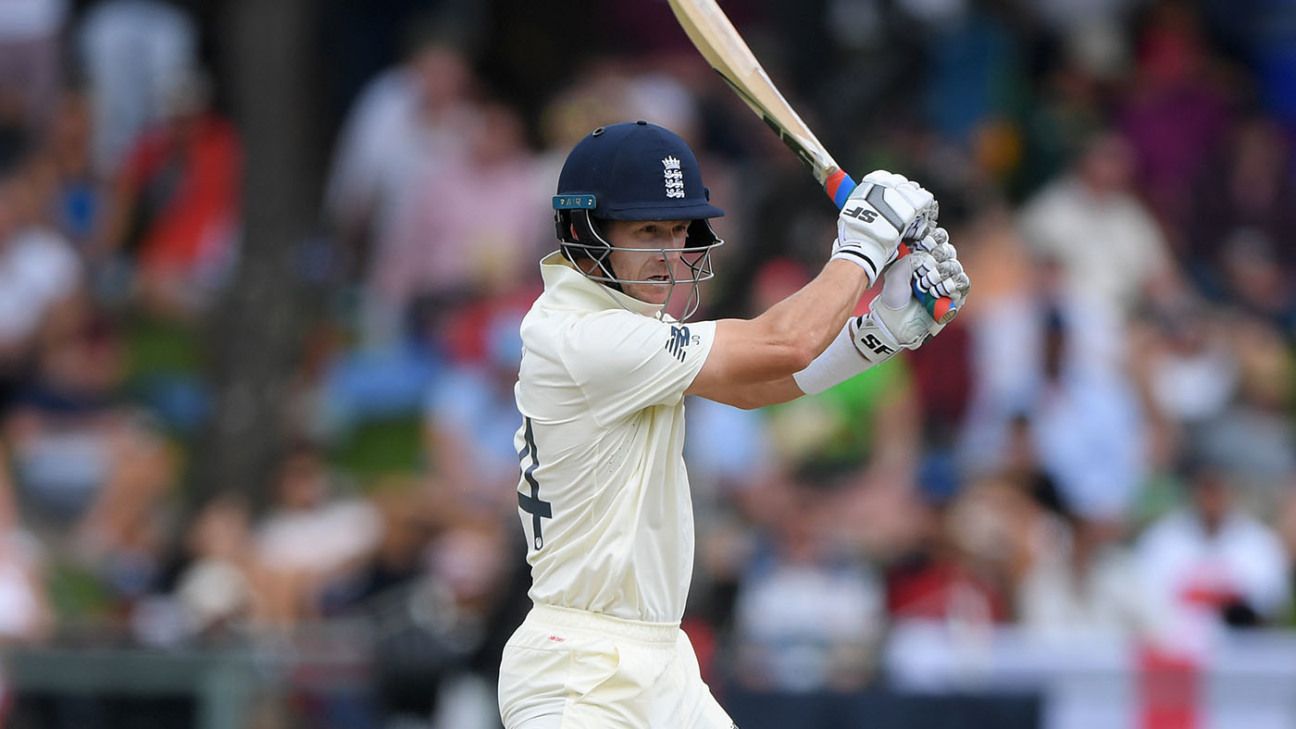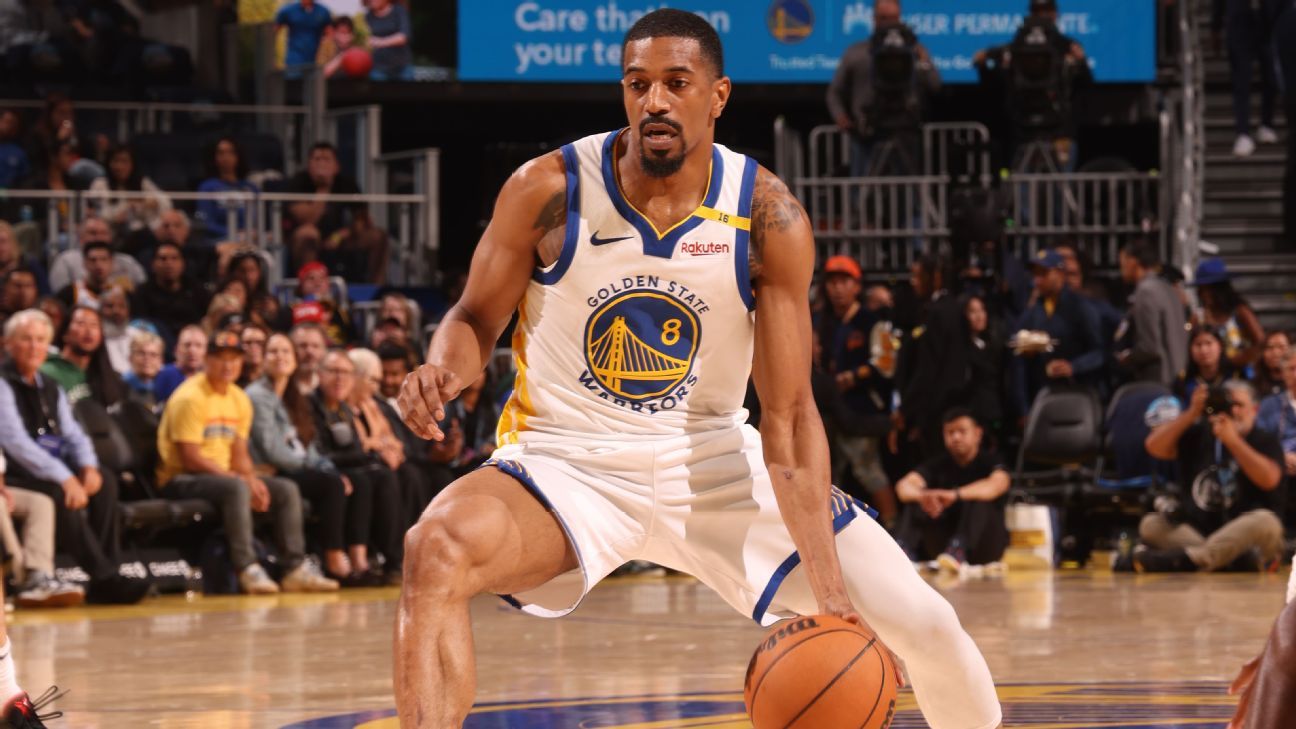
If there is one man who embodies the character of this new England side, it is, perhaps, Joe Denly.
A year or two ago, Denly's occupation of the crease - his resilience, his determination, his resistance - may have been used against him. It would have been characterised as demonstrating his limitations. Of failing to put the pressure back on the bowler. Of lacking positivity. It's not so long ago (May 2013) that a crushing victory over New Zealand achieved in four days (the first day of the Leeds Test was lost to rain) resulted in a torrent of criticism after the perception that England had, for a while, batted too slowly.
Times have changed. There has been, among other things, a realisation of England's limitations and a weariness at being bowled out as a team for the sort of scores that Steve Smith, as an individual, would be disappointed to achieve in each of his own visits to the crease.
Denly has been part of that change. He has not, as yet, gone on to register the major personal score that would win accolades, but he has worn down bowlers, worn off the shine and helped build a foundation for those that follow. Since his Test debut, only three men in the world have faced more deliveries - they're quite a trio - although everyone in the top dozen of that list has a higher average. He is, at this stage, more 'best supporting actor' than 'actor in a leading role'.
There have been times, not least in his first Test in Antigua last year, when Denly has looked somewhat out of his depth. But for a dropped catch and marginal umpiring decision, he would have suffered a pair on debut. And but for another dropped catch, his highest Test score - the 94 he made against Australa at The Oval - would have ended on 0. After 11 Test innings, he had passed 30 just once. He owes a great deal to the faith of national selector, Ed Smith, who has fought hard for his retention.
But he is improving. His final five innings against Australia - the period in which he put away the flash strokes and started to concentrate far more on occupation of the crease - included three half-centuries. He averaged 28.00 at the end of the series in the Caribbean and 28.56 at the end of the Ashes. That increased to 30.00 at the end of the series in New Zealand, and now to 31.30 at the halfway of the series against South Africa.
By comparison to some other Test No.3s it is a modest figure: Marnus Labuschagne, for example, is averaging 63.43 for Australia; Cheteshwar Pujara 49.48 for India and Kane Williamson 51.44 for New Zealand. But it has to be recognised that Denly has played half his Test career in England. While there are exceptions - notably Labuschagne - some fine top-order players have experienced horror runs in England in recent times. David Warner, for example, averaged 9.50 from his five Tests in 2019 and Murali Vijay 6.50 from his two Tests in 2018. Batting against the new Dukes ball on contemporary England Test pitches is desperately tough.
Maybe it's also worth comparing Denly's record with some well-known players of the past. That career average is, for example, very similar to that of Graeme Hick (who averaged 31.32) and Chris Tavare (32.50, at a strike-rate of 30.60) and not so far behind the likes of John Crawley (34.61), Mike Gatting (35.55) and Allan Lamb (36.09).
ALSO READ: The end of the Anderson overseas debate? It should be
There is a pretty clear distinction between the two phases of Denly's career to date. Ahead of the Leeds Test, starting on August 22, Denly was averaging 23.00 in Test cricket (he had played five Tests) and scored at a strike-rate of 49.67 per 100 balls with one half-century. Since then, he has averaged 37.68, with five half-centuries in seven Tests, and - crucially - he has scored at a strike-rate of 36.43. In short, since slowing down and taking a longer-term approach, his run-scoring has improved markedly.
There is a lesson here. And that lesson is that the old-fashioned skills - patience and the ability to leave the ball - still have a place in Test cricket.
"Batting big in the first innings is a plan of ours," Denly says. "We want to be solid up front, build partnerships and then allow the guys in the middle-order to come in and play the way they can.
"And as a top-order batter you want to bat time. But it is a case of understanding the game situation: there may have been times in the Cape Town Test when I maybe could have got on with it a bit more. I think it is just having that game sense, trying to understand what the bowlers are doing, trying to get the bowlers back for more and more spells in their legs, which allows our long batting line-up to take advantage when they are tired.
"I am becoming more confident with each game I play and each knock I have. It is frustrating that I haven't kicked on to that really big score, but I really believe it is just a matter of time if I keep doing the things I've been doing. Hopefully, it is not too far away."
In the grand scheme of things, this might all be considered bonus time for Denly. Less than a year ago he became, at 32, the oldest specialist batsman to make a Test debut for England in nearly 25-years. Since then he has played in an Ashes series, toured South Africa, New Zealand, Sri Lanka and the Caribbean. And while there is still the suspicion he is keeping the place warm for a younger man who can average in the 40s, the fact is England have tried many in the No. 3 position and most have been found wanting.
Denly isn't about to win many awards but, in at a time when England are blessed with plenty of middle-order stroke-makers and very few blockers, he is fulfilling a valuable role.














 Phone: (800) 737. 6040
Phone: (800) 737. 6040 Fax: (800) 825 5558
Fax: (800) 825 5558 Website:
Website:  Email:
Email: 






